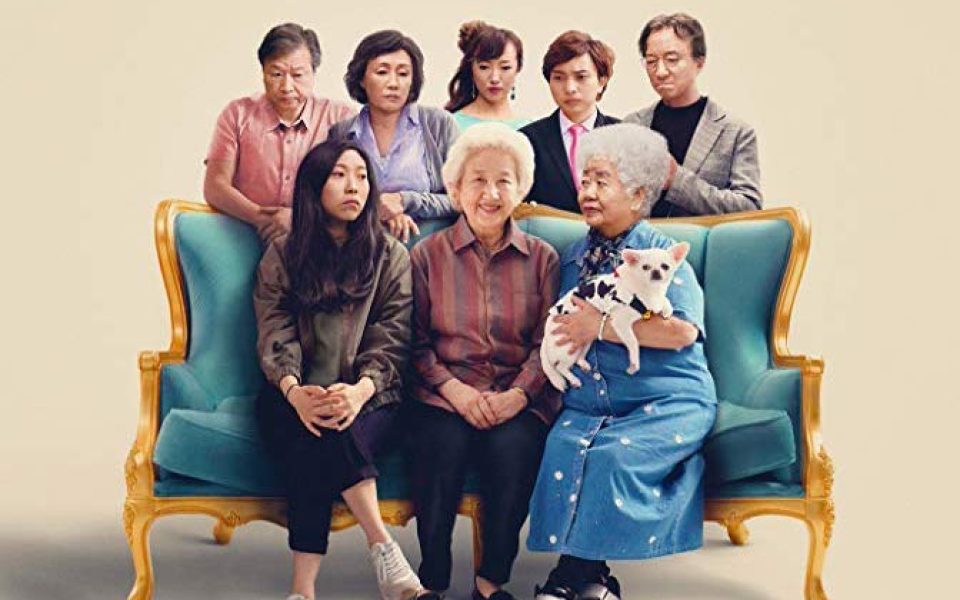My grandma loved to dance. She loved to sing. She drank smelly herbal teas and she was a damn good cook.
Watching Lulu Wang’s latest comedy-drama, The Farewell, brought back a flood of memories and feelings that I haven’t thought about or felt in years.
Last year, I lost my grandma — my A-chan — after she had a stroke. The last time I saw her was on Facetime. I truly thought she would outlive us all.
In the film, breakout actress and rapper Awkwafina portrays the protagonist, Billi, a young twentysomething not unlike myself, who visits China after she finds out that her grandma has been diagnosed with stage IV lung cancer. Her family — who spans across the world in the United States, where Billi lives, in their homeland of China and in Japan, where her uncle and cousin live — decides to gather and visit China one last time to see the grandma, or Nai Nai, before the end.
The only problem is that no one has told Nai Nai that she is dying. The family tells her that they’re coming for a wedding between Billi’s cousin and the Japanese girl he’s been dating for three months.
The story is a bizarre and captivating one that stems from Wang’s own life. The writer and director shared her story on the popular NPR show “This American Life” in 2016 about her family’s own real-life lie in which they staged a wedding to say farewell to a dying grandmother without letting her know of her own fate.

The film balances heart-wrenching moments, often shown through the subtle but impactful facial expressions and emotions portrayed by Nai Nai’s family members, with humor that comes from all-too familiar family interactions. All of the family members, including Billi, struggle with the secret they are keeping from the ailing grandmother, in an attempt to keep her last months lively and happy, rather than filled with pain and fear.
“They have a saying in China,” says Billi’s mom. “When you get cancer, you die. It’s not the cancer that kills you; it’s the fear.”
Still, Billi, who grew up in the States with Western values of individualism and independence, struggles throughout the film to reconcile her love for her grandmother and her desire to tell her the truth with honoring her family’s wishes and going with their Eastern value of carrying a heavy burden for the greater good.
In a January interview with Variety magazine, Wang describes the complicated duality of having one foot in each culture.
“I always felt the divide in my relationship to my family versus my relationship to my classmates and to my colleagues and to the world that I inhabit,” she said. “That’s just the nature of being an immigrant and straddling two cultures.”
Still, anyone who watches the film, immigrant or not, can sympathize and relate to the feeling of being torn between two cultures, two lives. Family versus society. Career versus relationships. Self versus the whole.
Though the film only lasts an hour and a half, the intimate interactions between Billi and Nai Nai can be felt long after the film ends. Scenes where Nai Nai tells Billi to eat more, asks if she has a boyfriend yet, tells her to watch out for scammers or encourages her to partake in her morning exercises with her, are all too familiar. We never seem to eat enough for our grandmothers.
My A-chan used to always say I was fat compared to the skinny girls in Japan. Still, she would constantly encourage me to eat more. I wish I could taste her cooking now.
Like Crazy Rich Asians and Always Be My Maybe, it’s long past time for Asian and Asian-American stories to hit the big screen. But whether you’re Asian or not, stories like The Farewell that expertly navigate the complicated feelings about family is instantly universal. Plus, everyone has a grandma.
Go call yours for me wouldja?
The Farewell will be screening at a/perture cinema in Winston-Salem starting on Friday. More info about showtimes and tickets here.
Join the First Amendment Society, a membership that goes directly to funding TCB‘s newsroom.
We believe that reporting can save the world.
The TCB First Amendment Society recognizes the vital role of a free, unfettered press with a bundling of local experiences designed to build community, and unique engagements with our newsroom that will help you understand, and shape, local journalism’s critical role in uplifting the people in our cities.
All revenue goes directly into the newsroom as reporters’ salaries and freelance commissions.


Leave a Reply